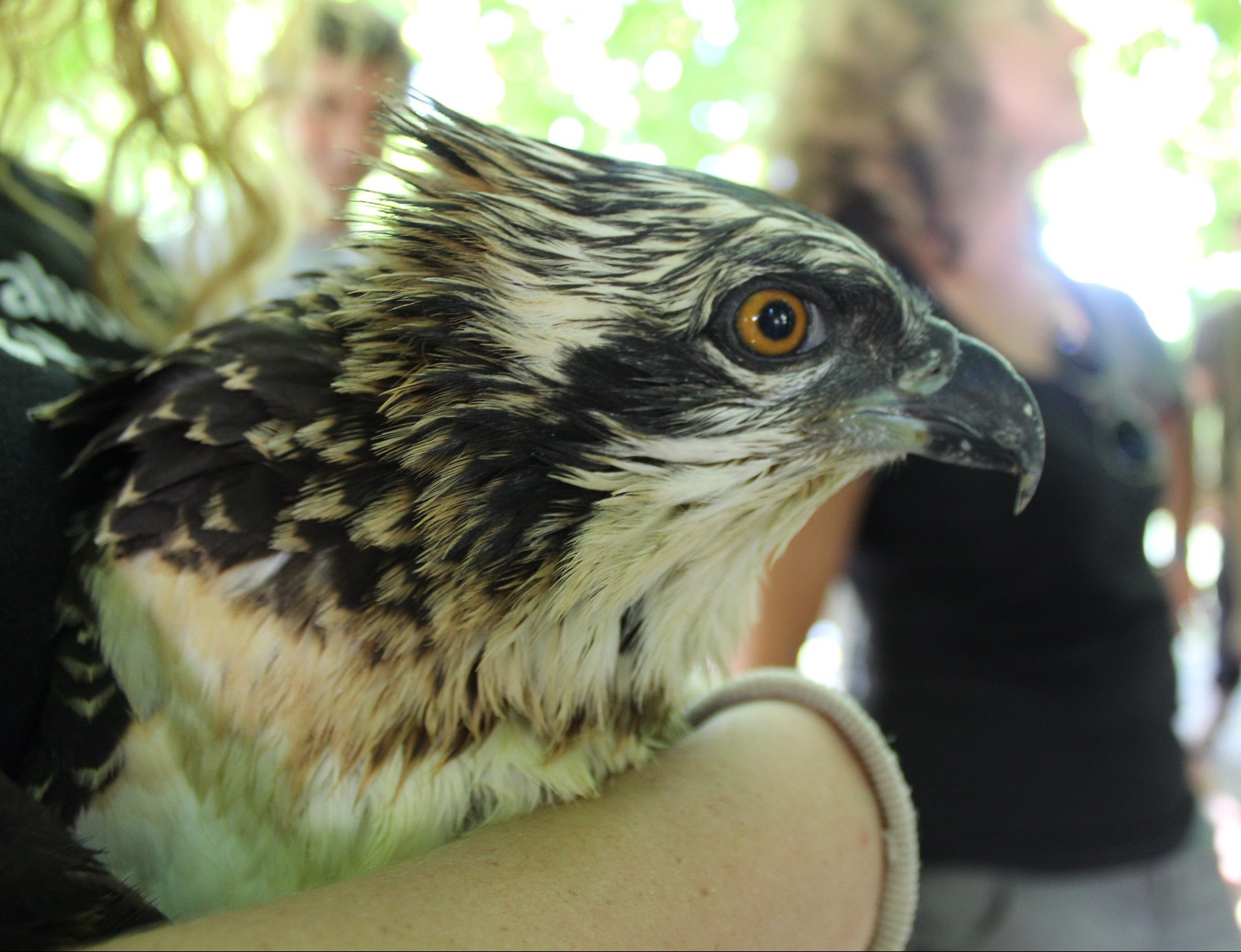New osprey hatchlings for the Marjal de Pego-Oliva
- Twelve chicks of this endangered species will be introduced thanks to the collaboration of Fundación Iberdrola España, Fundación Migres, and Roy Dennis Wildlife Foundation
- The project is directed by the Wildlife Service and Natura 2000 Network of the Generalitat Valenciana
The Marjal de Pego-Oliva Natural Park has just received new osprey hatchlings that are part of the reintroduction project for this endangered species in the Valencian Community.
The project, directed by the Wildlife Service and Natura 2000 Network of the Generalitat Valenciana, consists of receiving 12 osprey chicks from Scotland thanks to the collaboration between Fundación Iberdrola España, Fundación Migres, and Roy Dennis Wildlife Foundation.
The chicks have traveled this week from Scotland supervised by technicians from the Migres Foundation and have settled in hacking cages (country breeding) where they will be watched, cared for, and fed until they are ready for release in the natural park.
The presentation ceremony was attended by the president of Fundación Iberdrola España, Fernando García, representatives of the Migres Foundation, the mayor of Pego, and representatives of the Oliva City Council and the Generalitat Valenciana.
Fundación Iberdrola España has renewed the agreement with the Migres Foundation for another year for this project to reintroduce the osprey in the Valencian Community, which analyzes and assesses actions for the reintroduction and recovery of this bird of prey.
This project, which began in 2022 in the Marjal de Pego, has an annual budget from Fundación Iberdrola España of 50,000 euros and is part of one of its main lines of activity, which is the protection of bird life and habitat conservation.
The purpose of this collaboration is to obtain young fisherwomen from different donor countries for their transfer to the Valencian Community, for their release using hacking techniques, common in this type of reintroduction project. The ultimate goal is the recovery of a self-sufficient breeding population in the Community after more than 50 years of its disappearance.
The estimated number necessary for this is one hundred chickens, which are intended to be released over five years, for which they have the support of donor countries such as Scotland, Sweden, and Norway, among others.
The Migres Foundation has developed, since its inception, more than 130 projects related to the reintroduction of two endangered bird species, the osprey and the imperial eagle, to recover the Iberian Peninsula a species that had been extinct due to human action, and that he bred again in Spain.
Iberdrola, committed to protecting the environment
Iberdrola, through its Foundation in Spain, is firmly committed to protecting the environment and the fight against climate change. Thus, the commitment to biodiversity extends to important actions that are governed by the lines of action set out in the Master Plan, such as support for conservation programs for threatened species and the restoration of protected habitats.
Fundación Iberdrola España works with institutions and companies to improve the ecological environment and protect biodiversity. Among other initiatives, it supports the Rei Jaume I Prize for Environmental Protection in the Region, which is awarded to people who have excelled in research on improving the ecological environment.

